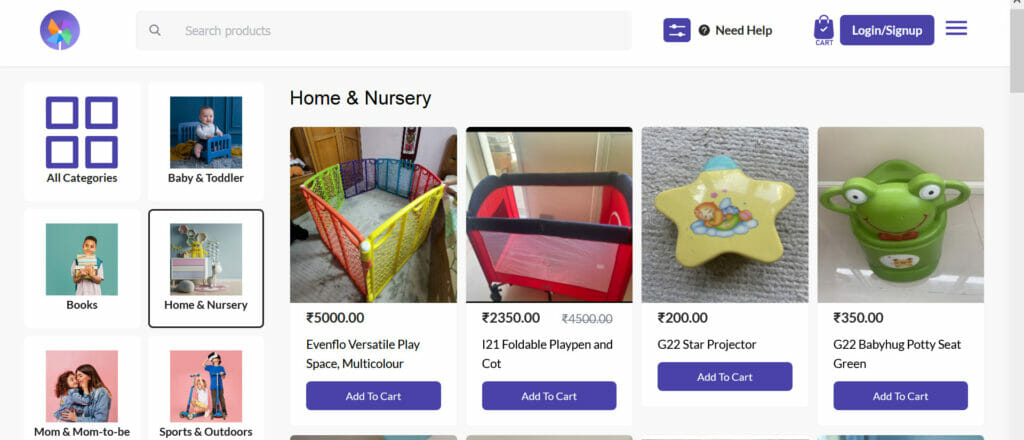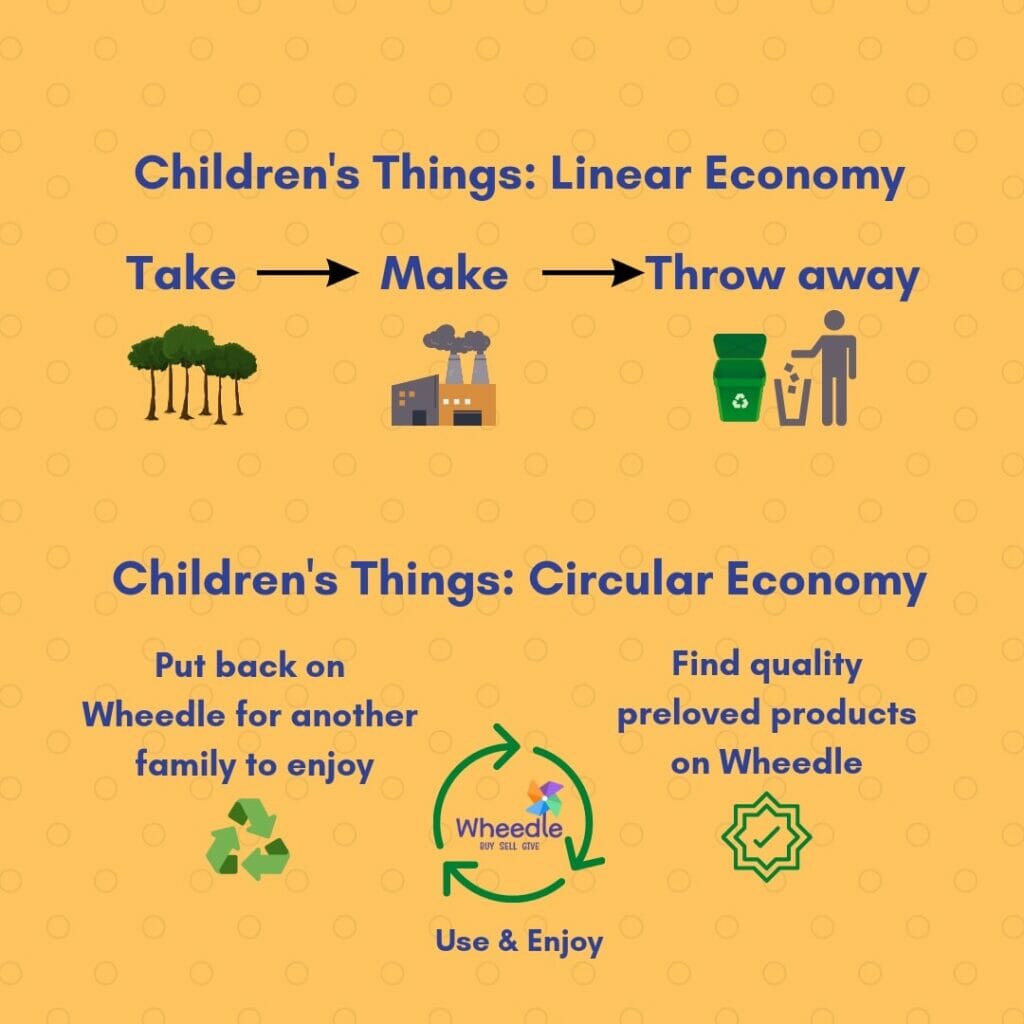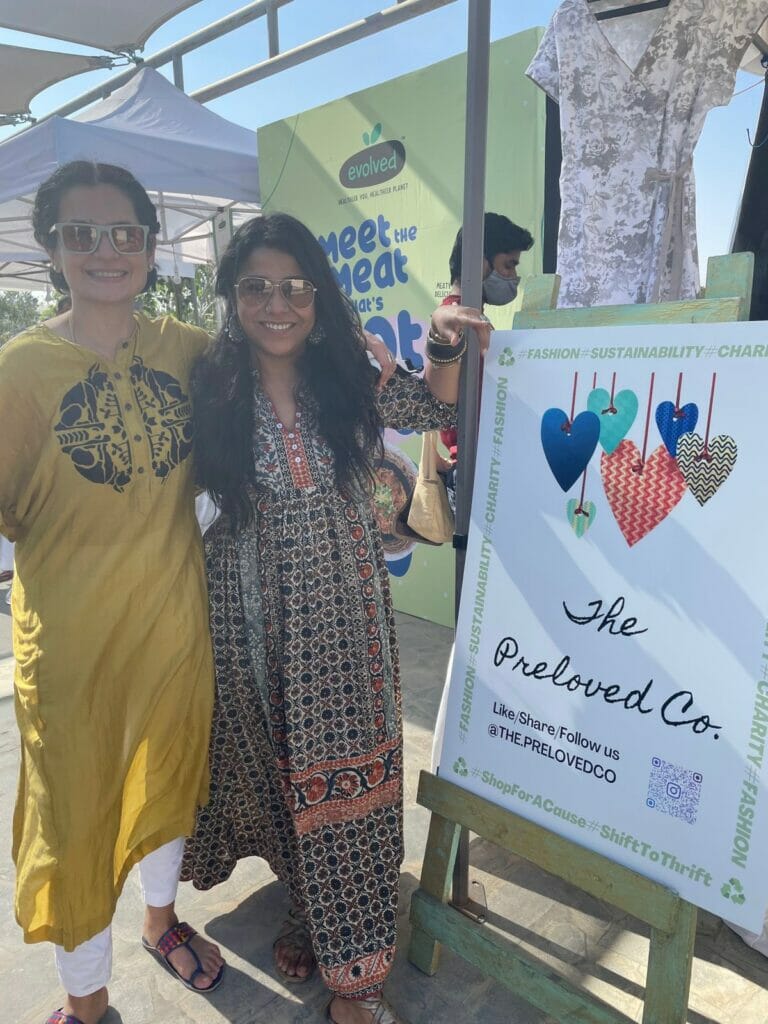Citizens in Bengaluru are taking to the circular economy with thrifting, buying used or second hand goods instead of brand new ones. The underlying principle is to reuse and recycle what already exists rather than producing new products with more resources. Thrift stores are common in western countries, where they are seen as good sources of unique, vintage, and sometimes even valuable items no longer available in mainstream markets.
The concept of thrifting or buying second-hand or pre-loved products is not entirely unheard of in India. Second hand book stores, for example, are quite common and often well loved in the city. Facebook pages like Second-to-none and commercial online stores like Olx are places where people could sell and buy used furniture, appliances, and even vehicles. There also exists a thriving informal community on Instagram (use #thrifting), where people can buy second hand clothes, shoes and accessories from various influencers, most of whom are typically young students or working on these ventures part time.
A thrift store for children
But Bengaluru is also seeing a spurt of largely women-led stores that embrace a mixed entrepreneurship model, where personal experiences have led to business that actively also tries to give back to the community and support various causes.
In keeping with the city’s tech and startup culture, Harshada Joshi and Snehal Chaitanya, created an online platform where parents can buy and sell children’s products, called Wheedle. Snehal, who moved back to India as a new mother, found that there was no source for good quality children’s products such as cots, toys, clothes, shoes etc in India. “In the UK it was easy to find second hand items that were also more affordable,” Snehal says. Discussions with co-founder Harshada, who is also a parent, eventually led to the founding of Wheedle.

Children’s products lend themselves well to the circular economy, according to the founders. “Most children’s items have a short use cycle. Kids quickly outgrow books, furniture, toys etc. Sometimes, in the case of babies, in a few months,” Snehal adds. But most of these products are of good quality and can be easily reused, provided parents have an easy way to sell or buy them.

The founders emphasise that Wheedle does not act as a store as much as it is a space for parents to turn into customers or sellers based on their needs. Parents can register on the site or use the app and choose to buy from different categories of products, including products for expecting mothers and toys, board games, and books for children up to the age of 10-11. They can also list their own products for sale. “Wheedle conducts quality checks, suggests a price based on condition and market value, and when the product is purchased, picks it up from the sellers and ships it to the buyer,” explains Harshada.
“Parents tend to worry about safety and hygiene when it comes to children’s products. They feel it is safer to buy new and branded products rather than risk any issues later,” observes Snehal. “So, it’s really important for us to create that trust with new parents,” Harshada adds.
Read more: Bengaluru’s Labour Stands present a highly exploitative and informal hiring market
Snehal and Harshada also found that several parents in the city simply wanted to donate products with no compensation. Wheedle organises collection drives across the city and donates the products to charities such as a day care centre for migrant labourers’ children run by the Anand Saagar Trust and raises funds from the sale of these products.
A traveling thrift store
Meghna Khanna’s tryst with thrifting began in 2017, when she took over the the Preloved Co., from her friend Mariam Begg, who founded the venture. The Preloved Co., is a non-profit that is best described as a sort of traveling thrift store that sells pre-loved fashion, including clothes, jewellery and accessories at various pop-up stores across the city. Meghna found herself drawn to the idea of preloved fashion while working as personal stylist.
“I found myself tired of the unending cycle of women buying clothes to feel good about themselves,” she says. She observed that most of these clothes would lie in the cupboard. “My clients didn’t necessarily like or feel good in them, but they would hoard [the clothes].” Thrifting is a great way to free oneself of these clothes and find other pieces that may fit better,” she says.

At the Preloved Co., donated items are sorted and go through quality checks and are then displayed and sold at various pop-up stores across the city. “Our last one this year was the Sunday Soul Santhe,” Meghna explains. The profits from these sales are donated to various charities across the city. For instance, they raised around Rs 1,55,500 for the Auto Raja Charity that works to house homeless people and around Rs 30,000 for the Bengaluru Pride.
A unique feature of the pop-ups is that customers can expect to avail Meghna’s style services for free at these events. “I love interacting with people and helping them find the right pieces,” she says. Potential customers are advised to track the Preloved Co’s movements on Instagram and book a spot with Meghna to get some free fashion advice at their upcoming pop-ups.
A thrift store for a cause
From digital to mobile thrift stores, we finally arrive at the Re-store, rooted in a semi-rural community in Whitefield. Devyani Trivedi, hit upon the idea of thrift store when as a volunteer at Whitefield Rising, she organised a donation drive for warm clothing and blankets for winter in 2017. Amongst the relevant warm items, were a huge amount of clothes all in very good condition. “People were just giving away designer and luxury brands in perfectly good condition,” says Devyani.
The former IT professional discussed it with other members of Whitefield Rising and came up with the idea of a thrift store along the lines of Goodwill and Salvation Army. The idea was to create a physical store in Whitefield, in a low-income neighbourhood and offer these items at very low prices, so that members in the locality could afford products that would otherwise be out of reach. “I did not want to give it for free. I wanted that regardless of their economic background, people should be able to walk in, choose what they like, and have the pleasure of owning it,” she explains.
Read more: For paanwalas of Bengaluru, bribes and eviction threats a constant reality
The proceeds are then cycled back into the needs of the community, such as scholarships for two school children and sudden health care costs. Devyani loves the physical aspect of the store, which has allowed her to create a safe space for the community. “People in the area now know us. So, when they have a problem they come to us for help informally as well.” Re-store’s proceeds are currently helping pay for karate classes for children at the local government school.
Because of the volume of donations and the fact that not all fashion is preferred by the local community (for instance, pencil heels), Devyani now also offers some of the clothes on Instagram to customers with higher incomes. “This way we also have more funds to better support the community.” She is hoping to use the platform to encourage people to not only donate but also barter. “We need people to not just donate but actively use our products. That will complete the cycle,” she says.
Although Instagram has been a great source of finding new customers, Devyani urges more customers who are interested in thrifting to visit the physical store. “There is something gratifying about our little shop in the community. It would be nice if more people dropped by and visited,” she says.
Checkout Wheedle at: https://gowheedle.com/. You can find them on Facebook and on Instagram: @gowheedle. Download their app on Playstore or Apple store.
The Preloved Co. can be found on Facebook and on Instagram: @the.prelovedco or join their WhatsApp group here.
Re-store can be found on Facebook. Their Instagram handle is @thrift.restoreblr. You can also visit them physically at 4th cross, Vijaynagar, Whitefield, Bengaluru.